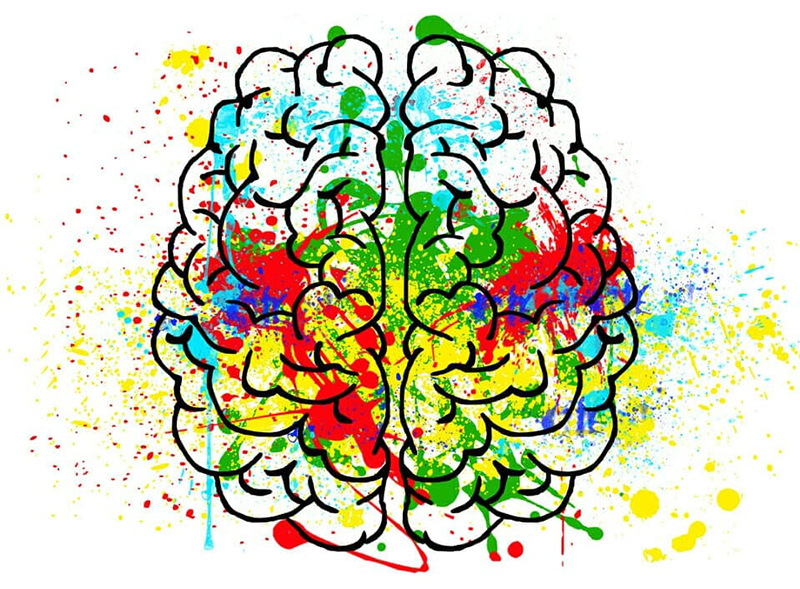
Self-awareness is a double-edged sword; awareness of self presupposes awareness of other. Developmentally, this experience typically occurs during infancy, and although the duality of this shift of consciousness is fundamental to being human, it is not entirely comfortable; resolving its inherent dissonance can absorb an entire lifetime. On the one hand, the experience of self and other is a false duality, an illusory breaking of wholeness some neuroscientists consider a sustained, controlled hallucination; on the other hand, it’s essential for the development of human culture as we know it.
The manifestation of objective reality requires the manifestation of subjective reality. “Does a tree falling in a forest exist if no one is there to observe it?” Being human embodies a persistent epistemological paradox.
Epistemology is the study of how we know what we know, an exploration into the roots of consciousness. Any conceptual exploration of objective reality depends upon subjective skills of thought, which in turn depends upon symbolic imagination, the mental words and images that point, like a finger points to the moon. Symbolic imagination is built upon information we receive from others – such as the words, ideas and emotions sent in our direction while we are infants. “You are such a cute little baby,” we are told, “We love you,” say mommy and daddy, this well before we have any ability to know the meaning of any of those words. For each of us those meanings, when embodied, are subjective; although as children we are taught about objective reality through descriptions and definitions, as adults we argue subjectively about objective meaning all the way to the Supreme Court.
Accommodating the truth of false duality takes a tremendous amount of human energy, this above and beyond the biological imperatives of hunger, sleep, reproduction, and basic survival that occupy the substantial portion of our lives. Accordingly, many of us spend little time concerned with epistemology, ignoring the formative process underlying our perceptions of self-awareness and awareness of others. Absent such introspection, we become, as author Georges Bataille notes, “like water in water,” all but oblivious to ourselves and others in the world we jointly inhabit except insofar as it is a medium of our existence. The complete absence of the perception of false duality is essentially sociopathic.
Promoting the truth of false duality is at the heart of most spiritual traditions, ie: “Being One with God,” “Becoming One with Everything,” “Losing oneself to connect with something greater.” Psychiatrist Iain McGilchrist explains this inclination in terms of brain architecture, namely the differences in functioning between our left and right hemispheres, and the particular ways in which each process information. The left, McGilchrist observes, promotes perception of autonomy and separateness, and the right perception of belonging and wholeness. How strongly each hemisphere inhibits and promotes these perceptions produces variations in our dualistic human experiences of being.
Applied to the most elevated realms of human conjecture about the nature of the universe, our two ways of being are mirrored in scientific dualism, illustrated by conjecture over whether waves or particles comprise the energetic building blocks of existence. String Theory attempts to resolve this conflict mathematically with a one-dimensional solution. More recent thought is that information itself has mass and contains the energy of existence. This radical idea places consciousness at the heart of being, an intrinsic condition that explains and underlies all and everything. Maybe.
Some reflections: ” On the one hand, the experience of self and other is a false duality, an illusory breaking of wholeness….” A pretty stark, and unsupported statement in my opinion. The implication is that perception of anything “other” is false. Really?
” it’s essential for the development of human culture” I would say “human existence”……or for that matter, mammalian or insect or cellular existence.
” we are taught about objective reality through descriptions and definitions…….” Though this is true, it is incomplete. We also learn about objective reality through touch, sight, sound, etc., like hitting our heads on the floor or getting a cut or burning our fingers. Or the cat scratching us. That’s pretty real.
” Any conceptual exploration of objective reality depends upon subjective skills of thought, …….” Why only explore objective reality conceptually? don’t we include sensory observation, and technological extension of the senses ( microscopes, etc.).
” “Does a tree falling in a forest exist if no one is there to observe it?” By this, I assume you mean no human. We know that the very existence of a tree includes the existence of many, many creatures capable of all kinds of perception, so there is never an instance of “no one” being there to observe it. Perhaps an example from before the known existence of living creatures, Maybe a volcano erupting?
Just a few thoughts on an interesting subject……..or is it object?
Your comments, as always, have a legitimate basis. However, what I’ve written is opinion, even if it sounds like fact, and I have a word limit of only 570 words. Such material is what comes of re-reading The Diamond Sutra!